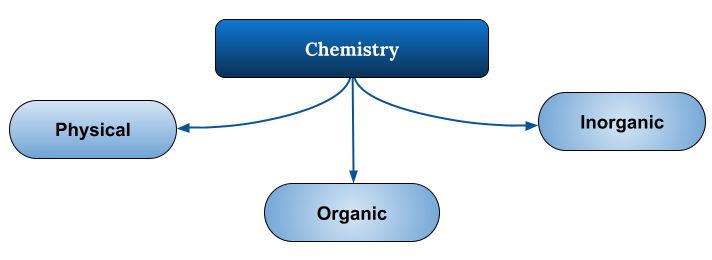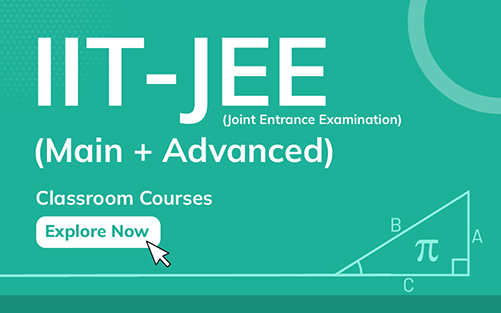How should I prepare for NEET Chemistry?

How should I prepare chemistry for the NEET examination? This isn’t just your question; it is the question of many aspirants like you who are preparing for the NEET examination but have no clue about how to master chemistry for the NEET examination. Chemistry is one of the most scoring subjects for NEET aspirants; however, due to a lack of proper guidance, most of the students cannot score more in this subject, which further appears in the form of their ranks. Today in this blog, MENIIT will discuss some important points, tips, and tricks that will help you score higher marks in this subject and consequently improve your rank and score in the NEET examination. Along with that, we will also discuss some FAQs related to chemistry for the NEET examination.
Unlike Physics, which is more numerical-oriented, and botany zoology, which is a more fact-oriented subject, Chemistry is a subject that has facts, tables, graphs, numerical problems, and reactions. So, the approach or strategy to tackle this subject is different from other subjects. Our focus should be on extracting more results with less hard work.
NEET Chemistry has three parts:

Each part has its own strategy. So, one should consider each part as a separate subject and try to complete each of them within a certain time limit.
Physical Chemistry
Physical Chemistry has lot of numerical but unlike Physics they are not very tough if you know the correct formula along with units. To excel in Physical Chemistry, you will have to practice a lot of questions and revising certain facts (values of different constants in different units). This seems to be really tedious work but can be done easily if the below mentioned order is followed.
- Prepare a list of formulae and learn them thoroughly
- Now, start solving questions independently without a time constraint.
- Slowly and gradually decrease the time and start doing calculations faster.
- Finally, arrive at a speed of solving questions where you solve one question per minute.
- Good mental Maths, learning short tricks from your teachers, and approximation skills, which also include techniques such as the method of elimination and back-solving help. These will be elaborated upon in next excerpt.
Organic Chemistry
Organic chemistry is one of the easiest and most scoring topics for the NEET if studied properly and in a systematic order. First of all, check the syllabus, and after that, strengthen your basic concepts from NCERT. Read NCERT multiple times; this will help you lay a strong foundation. Understand the basic concepts of bonding, molecular structures, isomerism, etc. properly. Study the advanced topics from MENIIT’s modules after completing the basics. For organic chemistry, you need to know how the reactions occur, although students do not need to know the intricate details.
Then after start solving exercises and previous-year questions. One can start by solving the NCERT textbook exercise, then go on to the NCERT exemplar exercises. Solving NCERT textbooks and NCERT exemplar exercises will increase the confidence level of students.
Students can also refer to MENIIT’s NEET modules. These modules are designed according to the latest exam pattern. Also, they contain theory in a very concise and lucid way, which would be helpful in better-understanding concepts and problem practice. .
Inorganic Chemistry
Inorganic chemistry is a portion that troubles students a lot. This section has a few chapters but a lot of exceptions. Generally, students refer to lots of books for inorganic chemistry, which is not advisable. One should follow only NCERT books very thoroughly for this section; this actually makes work easier.
Students should make short notes from the NCERT material and learn them. Make tables, charts, graphs, and mnemonics to remember the facts. This is a good bit of memorization work, but achievable as the content volume is now restricted only to the NCERT.
After reading NCERT, making proper notes, tables, and diagrams, and learning the facts, one should focus on solving questions, as practice plays a very important role in inorganic chemistry. Students should start solving NCERT textbook and exemplar problems. Then they should start solving the previous year’s questions. MENIIT modules cover a good number of questions on inorganic chemistry. Students can use them for a better understanding of concepts.
Which chapters to read and which can get less of our attention will be discussed in my forthcoming analysis on “Chemistry NEET Weightage: Which chapter got how many questions in the previous year’s NEET exams in the Chemistry Section?”.
Quick Tips to Strengthen Chemistry for NEET
The following tips can be useful for strengthening Chemistry for NEET:
Clear the fundamentals: One should have a clear understanding of basic concepts before moving on to the more advanced topics and chapters.
- Make handwritten notes: Making clear notes is very important to learning any subject. Students should make their own notes rather than buying from the market.
- Concept celerity: Students should focus on clearing concepts rather than syllabus completion. Clear concepts make it easier to link things, which would be helpful in increasing the overall marks in the examination.
- Use visual aids: use diagrams, flowcharts, mnemonics, mind maps, etc. to remember concepts. Reaction diagrams can also be used to link various reactions. This is more effective than reading pure theoretical texts.
- Mastering the Periodic Table: The periodic table is very useful for various concepts of inorganic chemistry. Each student who wishes to score good marks in chemistry should focus on mastering the periodic table.
- Practice: After learning each concept or chapter, students should practice questions from the different sources. Practicing questions helps students gain confidence and learn new things that are not present in the chapters. Students should focus on solving previous-year NEET questions and attempting mocks tests.
- Regular Revision: Chemistry is a subject that requires multiple revisions. So, students should focus on revising the concepts multiple times. Students should prepare short notes and revision charts for multiple revisions.
- Guidance: Mentor guidance is very important for any subject; students should regularly seek guidance from teachers and mentors in order to do better.
The best and most effective way to enhance your chemistry knowledge is to understand, memorise, practice, and revise. It is advisable to practice NEET PYQs to grasp the concepts.
To enhance your speed and accuracy, solve a mock test on a daily basis and also give time to analyse mock tests in order to identify your mistakes and get them rectified before the exam.
Frequently Asked Questions (FAQs)
Is NCERT enough for NEET Chemistry to score 180?
NCERT is good for strengthening the basic concepts. Also, for some sections, like inorganic chemistry, NCERT is the best resource.
How should I remember different concepts in Chemistry?
Students are advised to link various topics and make mnemonics, reaction charts, flowcharts, etc. to learn the concepts.
How to revise chemistry for NEET?
Students should make short notes, graphs, tables, and reaction charts for effective revisions. Along with this, students should also focus on solving questions.
How many hours should I study chemistry daily?
There are no specific number of hours; students can choose the time duration as per their convenience and learning speed. Still, one should give 2 to 3 hours daily for chemistry.

















